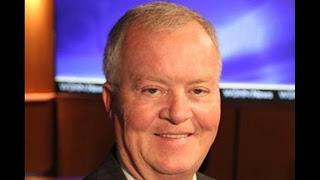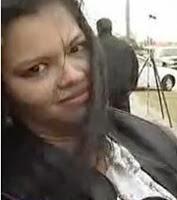
Ken Curtis, of WTVY in Dothan
How could a journalist be blindingly ignorant of First Amendment law, which to a great degree forms the foundation for his profession? If the journalist is not up to speed on the First Amendment, how could he be so lazy as to not even attempt to research the subject before reporting on it?Those are some of the questions that come to mind in the wake of a piece by Ken Curtis, senior reporter at WTVY in Dothan, Alabama, which trashed Web-based journalism in general--and Legal Schnauzer, in particular.
In taking a swipe at our coverage of the relationship between Republican lawyer/politico Rob Riley (son of former governor Bob Riley) and lobbyist Liberty Duke, Curtis proves that he knows zero about the facts surrounding the case--and maybe even sub-zero about the relevant law.
We sent an e-mail to Curtis, in a good-faith effort to set the record straight and hopefully help educate his viewers on a subject that is pretty darned important under the U.S. Constitution. But Curtis has not responded, so we can only assume that he is not in the business of enlightening the masses.
That leaves us to take matters into our own hands by sharing the e-mail that lays out facts and law with which Curtis obviously is not familiar. Here is the missive we sent to Mr. Curtis, with a copy to his boss, news director Kim Allen, at 2:42 p.m. on December 7:
Mr. Curtis:
I write the blog Legal Schnauzer, which you noted in the above-referenced article. Here is the notation about my blog:
"Some have threatened lawsuits against Carroll for false reporting though, to our knowledge, none have been filed. However, the man behind the Alabama-based website Legal Schnauzer was recently jailed for several months after refusing to remove unproven reports involving the son of former Alabama governor Bob Riley."
I think you should know the following:
* I have a bachelor's degree in journalism (B.J., 1978, University of Missouri), with more than 35 years of professional experience in the field. The defamation lawsuit that Rob Riley and Liberty Duke filed against me in fall 2013 was the first such case in my career.
* First Amendment law in the U.S. requires that defamation cases must be heard at trial, by a jury, to ensure that a single judge does not, in essence, act as a one-man censor. The Riley/Duke case against me never went to trial, never was heard by a jury. A judge (Claud Neilson), in fact, acted as one-man censor, contrary to law--and he did it in a case where there was no discovery. Riley and Duke never sat for depositions, never answered interrogatories, never turned over documents--they did nothing to prove their case in an adversarial setting.
* Your piece implies that it's common practice for reporters to be jailed in defamation cases. In fact, there is no provision of law for incarceration under such circumstances. It appears that I am the only journalist in U.S. history to be imprisoned because of a preliminary injunction that is expressly forbidden by Near v. Minnesota (U.S. Supreme Court, 1931), which is considered the "foundational" case of the 20th century on the subject.
* My reporting never has been found false and defamatory at trial. In other words, Riley and Duke did not come close to meeting their burden of proof. I gave up five months of my freedom for practicing journalism and writing a story that has not been proven to be anything other than true.
* Rob Riley has made no statement under oath that my reporting was false. As a lawyer, he could face serious repercussions for making a false statement under oath.
Please accept this as a formal request for an interview, so that you and I can shine light on the actual facts and law surrounding the Riley/Duke case. I think it would be a great idea for you to also interview Rob Riley and Liberty Duke and their respective attorneys (Jay Merrill, of Birmingham, and Christina Crow, of Union Springs). In fact, I would love to take part in a televised panel discussion, if your station is willing to host such an event.
As it stands now, you have given the public a wildly skewed and inaccurate portrayal of what took place in the Riley/Duke case. I submit that it's important to set the record straight, and I would welcome the opportunity to do so.
Best regards,
Roger Shuler
Three key takeaway points from all of this?
(1) The Riley/Duke lawsuit, contrary to law, never went to trial and never went before a jury. Judge Claud Neilson violated federal law by acting as one-man censor.
(2) My reporting was not proven false or defamatory at trial; there was no trial. Riley/Duke never came close to meeting their burden of proving my posts were false.
(3) There are no provisions under state or federal law for a preliminary injunction in a defamation case, which could lead to incarceration of a journalist for writing a story that has not been proven to be anything other than true.

Liberty Duke
(4) Even Rob Riley has not made a sworn statement claiming my reporting was false--no affidavit, no answer to an interrogatory, no answer to adversarial questions in a deposition or open court. Nothing, nada, zilch. Riley's own actions indicate the story is true.Finally, I am absolutely serious about the highlighted section above. I dearly would love to be involved in a panel discussion about the Riley/Duke case. My incarceration drew international news coverage, and while many of the stories were solid and well reported, I'm not sure any of them has fully explained that my treatment was so grossly unlawful that . . . well, it should make any constitutional scholar want to vomit. Heck, it should make any sentient citizen want to puke.
So I hereby challenge Rob Riley and Liberty Duke, and their attorneys Jay Murrill and Christina Crow, to a panel discussion--hosted and televised live by WTVY, of Dothan. Heck, Ken Curtis can even serve as moderator, and I would be glad to help him get boned up on the relevant facts and law in advance.
What are the chances that any of the individuals above will take up this challenge? I will keep you posted.
